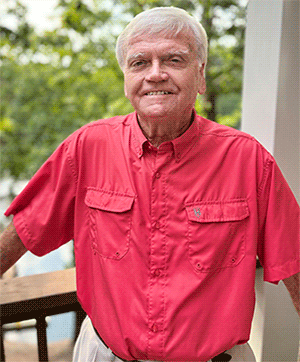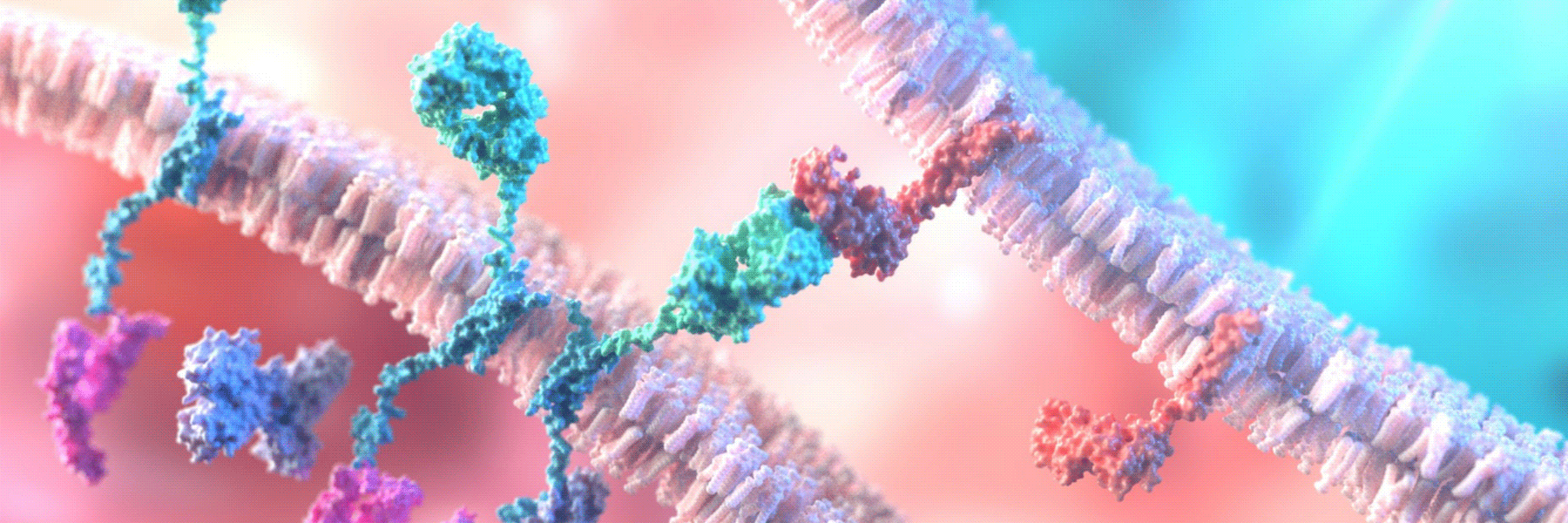 A promising new treatment for generalized myasthenia gravis is on the horizon.
A promising new treatment for generalized myasthenia gravis is on the horizon.
RNA CAR T-cell therapy uses the body’s own immune cells to fight disease. This therapy has been successful in treating cancer, and now researchers are investigating how it could help patients with other conditions.
Danny DeBerry is one patient who has benefited from this emerging therapy. The 68-year-old is participating in a clinical trial to determine the safety and efficacy of Descartes-08 CAR T-cells. These cells have been engineered specifically for people with MG, using the patient’s own blood.
DeBerry began treatments this winter and has seen enormous relief from his symptoms.
“People say, 'This changed my life,’ but this really has changed my life. It’s hard to put into words,” he said.
For about a decade DeBerry suffered from gradually worsening MG symptoms, including double vision, weakness and difficulty breathing and swallowing. He also had other health problems, including a mini-stroke that caused an aneurysm in his eye, which exacerbated his vision issues, and a double hip replacement.
A procurer for timber companies near his home in Montgomery County, North Carolina, he frequently spends long days walking the woods. He struggled to walk more than a short distance without having to sit – or even lay down. His double vision made even simple tasks frustrating and exhausting.
“What really messed me up was when I was out cruising timber, in areas of multiple small stems out in the woods. When you have 20 or 30 small saplings, all of a sudden, it’s 40 or 60. It was really disheartening and depressing.”
Though DeBerry was on treatments including IgIV, plasma exchange and Mestinon, his symptoms did not improve.
“It was getting terrible.”
One day, while reading Focus on MG, the MGFA magazine, DeBerry saw information about a clinical trial seeking participants.
“I didn’t know anything about it, but I thought, shoot, what have I got to lose? I’m getting in bad shape!”
He reached out to the study lead and was eventually accepted into the trial. The Unversity of North Carolina School of Medicine is one of the sites for the Cartesian Descartes-08 MG-001 clinical trial, and Danny traveled to that site location and participated in the study.
The trial involves Descartes-08, a T-cell therapy that is made from a patient’s own blood. The cells are engineered with an mRNA to redirect them to find and kill antibody-producing plasma cells. Researchers are testing whether these T-cells, when administered back to the patient, will find and kill the aberrant plasma cells that produce the pathogenic antibodies in MG.
Early trial results were presented at the 14th MGFA International Conference, held in Miami in May 10-12, 2022 (see poster here). Trial participants received varying dose regimes, with promising results for some patients, including DeBerry.
He says he started feeling better after his second infusion of the CAR T-cell treatment. Though he experienced some side effects, including a high fever, he felt stronger. After six weeks, when his infusions were complete, he began a series of tests to see what was happening in his body and to evaluate his symptoms.
"My testing just kept getting better… I was maxing out the stress tests, no double vision. I wasn’t choking on any liquids like I was before. My jaws weren’t getting tired. My wife and I took some time off and went on vacation in early April. We got to where we were riding bikes ten miles a day.”
Remarkably, DeBerry says he also saw improvement in the vascular issues plaguing his eyes – an issue unrelated to his MG – and in periodontal problems.
“It’s kind of like the gift that keeps on giving,” he said.
"I am very encouraged by the interim analysis findings for this RNA CAR T-Cell therapy," said neurologist Dr. Volkan Granit, a principal investigator of the study. "The treatment appears safe and well tolerated, and the extent of clinical improvement seen in our early participants is remarkable. If future data in a controlled study corroborate these findings, Descartes-08 would become a welcome addition to our armamentarium for treating MG."
Danny DeBerry continues to work, up to ten hours a day sometimes, and to enjoy the little things, like shopping at the grocery store without getting dizzy. He encourages others whose symptoms have deeply impacted their quality of life to ask their medical providers if they qualify to participate in a clinical trial.
Cartesian Therapeutics, the biomedical company overseeing the Descartes-08 clinical trial, continues to enroll patients.
“We are looking to open more sites and enroll more patients as we are receiving some exciting data from the patients that have been enrolled already,” says Dr. Adam Chowdhury, senior director for clinical operations.
The Descartes-08 / Cartesian Therapeutics study is ongoing and open for enrollment. To learn more, visit clinicaltrials.gov and talk with your medical care team.

